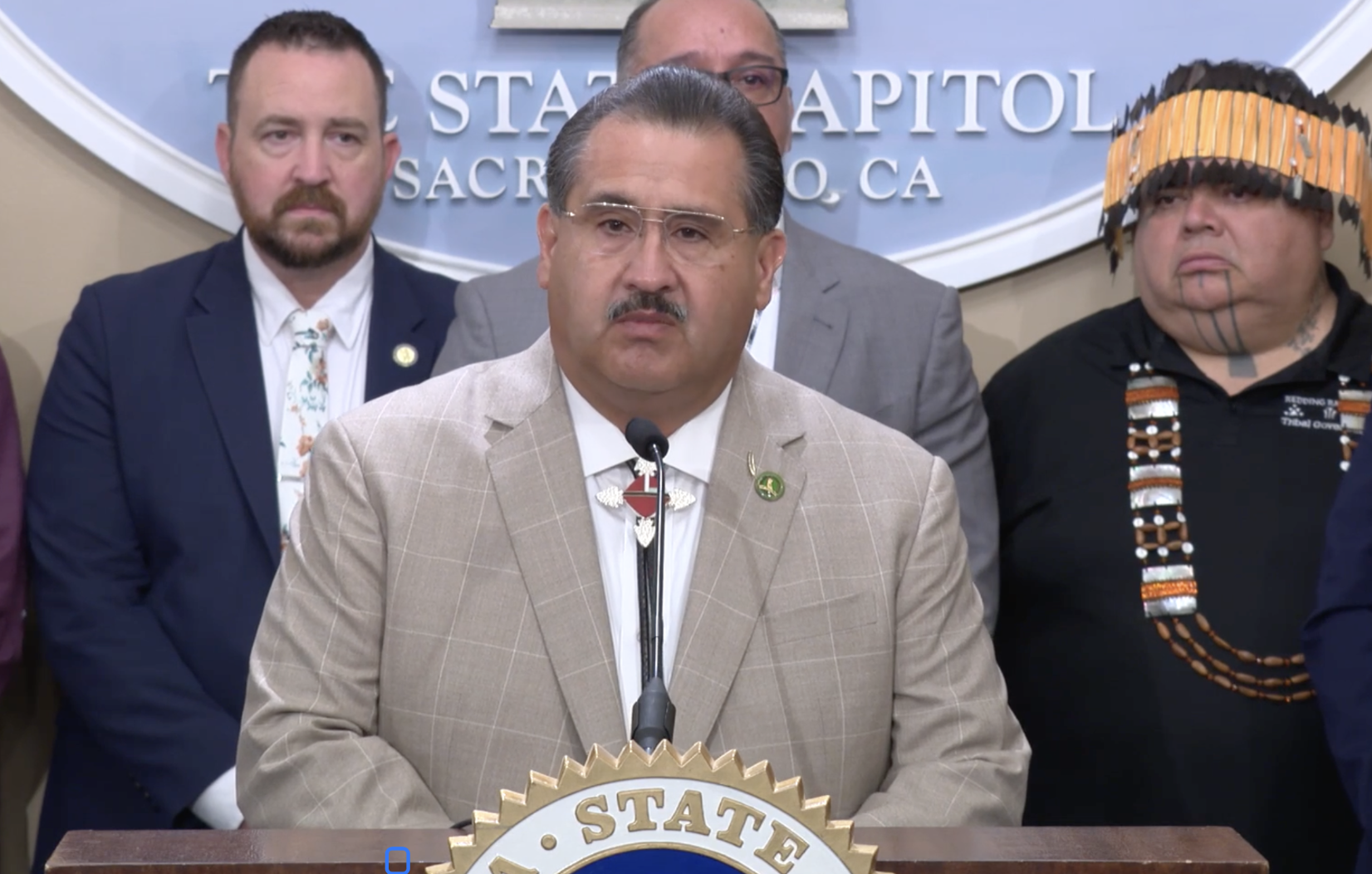
- Details
- By Native News Online Staff
On Tuesday, California assembly member James Ramos held a news briefing ahead of an oversight Committee hearing by the Select Committee on Native American Affairs and the Joint Committee on Legislative Audit.
The oversight hearing is a result of a bill Ramos passed last year, which, among other mandates, requires California State University to submit an annual report on its repatriation progress by the end of this year.
“[That] is why we are holding an oversight hearing today and annually thereafter,” Ramos said in a press briefing today. “We will continue to monitor and press for an end to this shameful, decades-long delay of remains back to our ancestors.”
California’s state auditor has conducted three audits: a UC audit in 2019, a second UC review in 2021, and a CSU survey and report in 2022. The CSU audit in 2022 revealed the university system held a collection of more than 700,000 Native American ancestors in its possession.
A similar audit of the University of California system, published in June 2020, identified a sample of at least 500,000 Native American human remains in the university’s possession. The audit included recommendations for the state’s universities, its legislature, and the California Native American Heritage Commission.
The process of repatriating human ancestors has been ongoing under Ramos’ leadership, as well as a complete overhaul of the federal law that requires universities and agencies to return Native American human remains and their artifacts. In May 2023, California State University Fullerton began the process of returning more than 200 Native ancestors.
Charles Martin, Chairman of Morongo Band of Mission Indians, said on Tuesday that working with California universities to return Native ancestors is going to take a lot of work, but its results will benefit tribal nations across the United States.
“We’ve made a lot of progress, but there is still much work to be done,” he said. “We come today with the hopes that we can come to real solutions in terms of working with the UCs. This is something that exists in each state where there are tribal communities, and folks want to return the remains of their ancestors back to a final resting home.”
The discussion from the oversight committee hearing has not yet been published as of Tuesday evening EST.
More Stories Like This
Oglala Sioux Tribe Rejects ICE Conditions for Information on Detained MembersSupreme Court Victory Secures Alaska Native Subsistence Fishing Rights
Three Kings Day Feast Honors Pueblo Self-Governance Rooted in Pre-Colonial Traditions
Navajo Council Committees Tackle Grazing Enforcement, Code Revisions
U.S. Must Fulfill Obligations by Protecting Programs
Help us defend tribal sovereignty.
At Native News Online, our mission is rooted in telling the stories that strengthen sovereignty and uplift Indigenous voices — not just at year’s end, but every single day.
Because of your generosity last year, we were able to keep our reporters on the ground in tribal communities, at national gatherings and in the halls of Congress — covering the issues that matter most to Indian Country: sovereignty, culture, education, health and economic opportunity.
That support sustained us through a tough year in 2025. Now, as we look to the year ahead, we need your help right now to ensure warrior journalism remains strong — reporting that defends tribal sovereignty, amplifies Native truth, and holds power accountable.
 The stakes couldn't be higher. Your support keeps Native voices heard, Native stories told and Native sovereignty defended.
The stakes couldn't be higher. Your support keeps Native voices heard, Native stories told and Native sovereignty defended.
Stand with Warrior Journalism today.
Levi Rickert (Potawatomi), Editor & Publisher


